The Meta Quest just became the Pixel of VR headsets
Meta is becoming the Android of virtual reality, with Meta Horizon OS bringing more varieties of open-source VR gaming headsets.
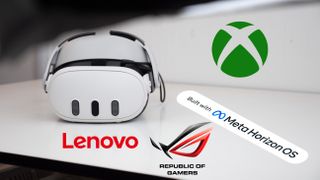
What you need to know
- Meta Horizon OS is an open-source VR software system designed for third-party VR headsets.
- ASUS ROG will make a "all-new performance gaming headset" running Meta Horizon OS, while Lenovo will make a productivity headset.
- Meta and Microsoft are teaming up on a "limited-edition Meta Quest, inspired by Xbox."
- Meta is going all-in on its own software after failing to partner with Google to bring Android apps to Quest headsets.
Meta Quest is going open-source. Meta Horizon OS, the rebranded name for the spatial software behind the Quest 3, is being lent out to partners like ASUS Republic of Gamers, Lenovo, and Xbox to make their own spin-off versions of VR headsets with Quest games and apps.
Meta will share popular Quest features like inside-out tracking, passthrough and room scanning for mixed reality, and the Meta Quest Store of hundreds of Quest games — now renamed the "Meta Horizon Store."
Mark Zuckerberg, who announced the news on Instagram, called this an update to the "metaverse" and said Meta is "partnering" with the brands above for their new headsets.
A post shared by Mark Zuckerberg (@zuck)
A photo posted by on
After Meta and Google failed to come to terms about bringing Android to Quest headsets, Meta is essentially trying to become Android, with Quest headsets as the stock Pixels of the VR world and other brands taking on specific niches like power gaming or productivity.
Meta's blog post announcement explains that ASUS ROG, for instance, will make an "all-new performance gaming headset." Just as the ASUS ROG Phone 8 Pro is the fastest Android phone on the market, the unnamed ASUS Quest spin-off could be the fastest VR headset for gaming, with access to both Quest games and Air Link for PC VR.
"With Meta Horizon OS, ASUS and Republic of Gamers will build the gaming headset of the next generation," says ASUS co-CEO S.Y. Hsu.
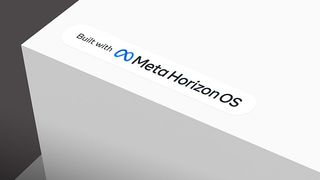
Lenovo, which helped Meta design the hardware for the Oculus Rift S, will make its own "mixed reality devices for productivity, learning, and entertainment." This would presumably compete with the Apple Vision Pro and have similar features to the upcoming Quest Pro 2.
Be an expert in 5 minutes
Get the latest news from Android Central, your trusted companion in the world of Android
The splashiest news is that Meta and Xbox are making a "limited-edition Meta Quest, inspired by Xbox." We assume it'll make Xbox Cloud Gaming the default app so you can stream Xbox games right away, but we don't know what other Xbox-themed features or console UI changes will come to the headset. We've asked Meta for more information and will update if we hear back.
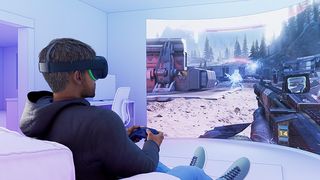
Aside from offering the same Quest games, software, and UI, these headsets will use the same Snapdragon XR2 Gen 2 (or XR2+) as the Meta Quest 3. So whatever Meta's partners call their headsets, they will be Quest 3 spin-offs in most respects.
Meta, which has historically struggled to get app developers to buy into the Quest ecosystem, is using the Meta Horizon OS rebrand to tempt mobile developers onto the platform.
"We're also developing a new spatial app framework that helps mobile developers create mixed reality experiences. Developers will be able to use the tools they’re already familiar with to bring their mobile apps to Meta Horizon OS," the post reads.
We'll have to wait and see whether the Meta Horizon OS rebranding pays off, and if they can successfully supplant Android XR as the ecosystem of choice for VR hardware makers.
How will this succeed where Google Daydream failed
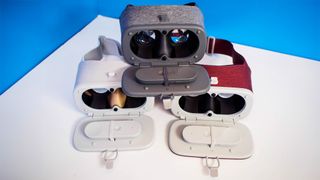
In early March, I talked about how Google abandoned VR years ago in my weekly ThVRsday column. Daydream was supposed to be the first major standalone VR operating system, as it was built on Android to help companies easily implement it into their own VR hardware. Like Android, it offered a unified app store and a basic set of capabilities to make VR development easier.
However, a problem happened just three years after its announcement: Google abandoned it. Google is infamous for abandoning products, and while it sometimes makes sense, few companies have a products and services graveyard as big as Google. The KilledByGoogle website proves that.
Ironically, the year Google killed off Daydream was the same year Meta launched the original Oculus Quest. As we now know, Meta's strategy of launching standalone headsets and shifting its focus was the right move.
Google is infamous for abandoning products, and while it sometimes makes sense, few companies have a products and services graveyard as big as Google.
If Meta has done anything right over the past 10 years since it acquired the Oculus brand, it's supporting its hardware. While dedicated Rift hardware is no longer supported — most of it launched at least half a decade ago now anyway — Quest hardware has been supported in ways that even smartphones would be jealous of.
Every single month, Meta delivers a new software update that brings new features to its headsets and even sometimes upgrades them. Not only that, but the original Oculus Quest is only just now being sent out to pasture five years after its release. That substantial because the Quest 2 sold at least 20x the number of headsets of the original Quest, yet, Meta kept supporting and updating it throughout that time.
If Meta has done anything right over the past 10 years since it acquired the Oculus brand, it's supporting its hardware.
What's not immediately clear is how well third parties will keep their headsets updated. Will this be similar to Android, where companies are responsible for their own headset updates? Or will this be more like Windows, where Microsoft updates the OS and the hardware has separate drivers?
Android Central has contacted Meta for answers to these questions and more, but they did not get back to us in time for publication. We will update the article once we have more information.
If nothing, Meta's penchant for keeping its OS regularly and quickly updated bodes well for the future of third-party headsets from companies like Lenovo, ASUS ROG, and Microsoft Xbox.
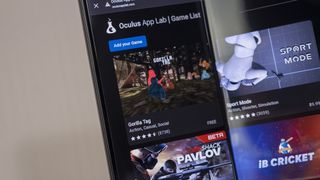
Plus, it looks like Meta has listened to feedback and is working on fixing its app store. The company says it's "beginning the process of removing the barriers between the Meta Horizon Store and App Lab." Currently, the Meta Horizon Store is tightly curated but offers no explanation for why some apps make it to the "real" store while others are stuck in "App Lab limbo."
Meta says that App Lab titles will receive a dedicated section on the Meta Horizon Store on all Meta Horizon OS-powered devices. This has the potential to address the biggest issue with the Quest's struggles with VR developers, but it doesn't quite solve Meta's lack of 2D apps.
Google is expected to announce Android XR at Google I/O in mid-May, opening up a massive amount of competition in the AR/VR space.
The Apple Vision Pro famously launched with hundreds of thousands of iOS apps available on day one. Meanwhile, only a few dozen 2D apps exist on the Meta Horizon Store.
While Meta and Google continue to bicker about Google Play Store access, Meta says its new initiative will help developers bring spatial apps to the platform. Developers "will be able to use the tools they're already familiar with to bring their mobile apps to Meta Horizon OS." Meta says it's trying to work with Google to bring the Play Store to the Meta Horizon platform, but so far, talks have fallen through.
Meanwhile, Google is expected to unveil Android XR at Google I/O 2024 in mid-May, powering the upcoming Samsung XR headset along with headsets from other partners. Android XR will ship with the Google Play Store, although it's not clear yet how Google plans to adapt existing 2D apps into "spatial apps," as they're called.
It won't be long now until we find out who does it better, but one thing is clear: competition is good for everyone, and the XR industry is about to see a massive influx of competing headsets and operating systems in a way we haven't seen since Apple redefined the smartphone experience.

Michael is Android Central's resident expert on fitness tech and wearables, with an enthusiast's love of VR tech on the side. After years freelancing for Techradar, Wareable, Windows Central, Digital Trends, and other sites on a variety of tech topics, AC has given him the chance to really dive into the topics he's passionate about. He's also a semi-reformed Apple-to-Android user who loves D&D, Star Wars, and Lord of the Rings.
For wearables, Michael has tested dozens of smartwatches from Garmin, Fitbit, Samsung, Apple, COROS, Polar, Amazfit, and other brands, and will always focus on recommending the best product over the best brand. He's also completed marathons like NYC, SF, Marine Corps, Big Sur, and California International — though he's still trying to break that 4-hour barrier.
